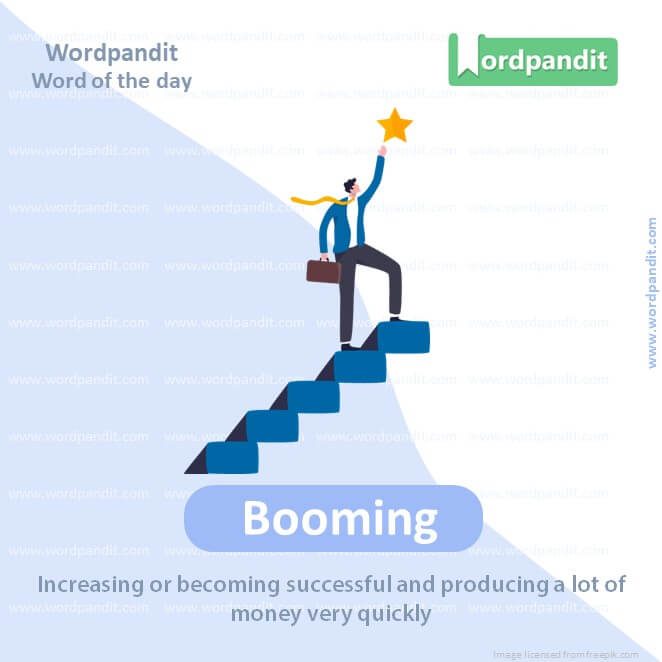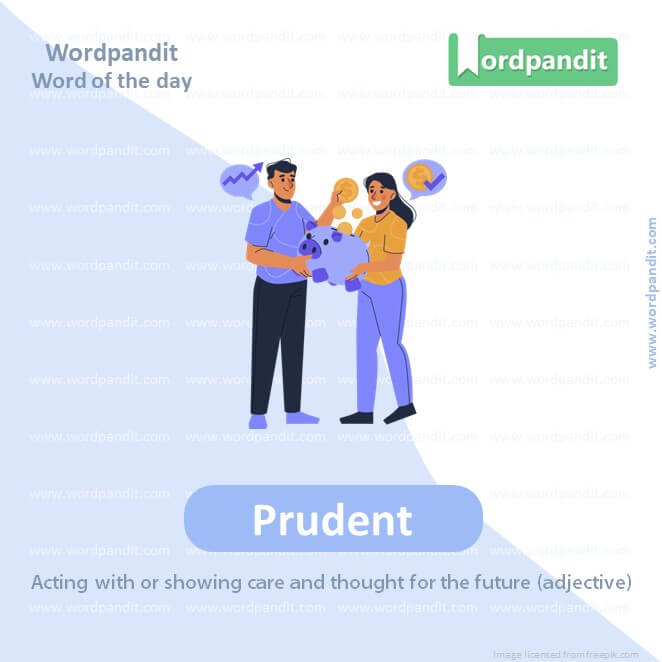Daily Vocabulary Words: List of Daily Used Words in Leading Indian Newspapers
Hi there. Welcome to this special section @ Wordpandit. Our endeavour here is straightforward: highlighting daily vocabulary words that you would come across in leading newspapers in the country. We have included the following newspapers in our selection:
• The Times of India
• The Economic Times
• Hindustan Times
• Mint
• Indian Express
We are putting in extensive work to develop your vocabulary. All you have to do is be regular with this section and check out this post daily. This is your repository of commonly used words; essentially, we are posting a list of daily used words. Hence, this has significant practical application as it teaches you words that are commonly used in leading publications mentioned above.
Visit the website daily to learn words from leading Indian newspapers.

WORD-1: Mortgage
CONTEXT: Taylor argues that the Act in fact helped realtors and mortgage lenders aggressively target black communities since its guarantees meant the government would pay lenders even in the case of foreclosures.
SOURCE: Hindustan times
EXPLANATORY PARAGRAPH: Imagine if your parents wanted to buy a house but didn’t have all the money to pay for it right away. They can promise to pay over time, and that promise is called a “mortgage.” It’s like borrowing a lot of money to get a house and then paying it back slowly.
MEANING: A legal agreement by which a bank lends money in exchange for taking title of the debtor’s property, with the condition that the conveyance of title becomes void upon the payment of the debt (noun).
PRONUNCIATION: MOR-gij
SYNONYMS: loan, lien, debt, advance, finance
USAGE EXAMPLES:
1. They took out a mortgage to buy their first home.
2. Paying off the mortgage was their biggest financial goal.
3. The bank offers various mortgage plans for new buyers.
4. Interest rates on mortgages can affect monthly payments.
WORD-2: Foreclosures
CONTEXT: Taylor argues that the Act in fact helped realtors and mortgage lenders aggressively target black communities since its guarantees meant the government would pay lenders even in the case of foreclosures.
SOURCE: Hindustan times
EXPLANATORY PARAGRAPH: Imagine if someone bought a house with borrowed money but then couldn’t pay it back. The bank might take the house away so they can get their money back. This taking away of the house is called “foreclosures.”
MEANING: The legal process by which an owner’s right to a property is terminated, usually due to failure to pay a mortgage (noun).
PRONUNCIATION: fohr-KLOH-zhurs
SYNONYMS: repossession, seizure, liquidation, recovery, eviction
USAGE EXAMPLES:
1. The rise in foreclosures affected the housing market.
2. Many families faced foreclosures during the financial crisis.
3. Foreclosures can lead to a loss of homes for many people.
4. The company specializes in buying properties in foreclosure.

WORD-3: Delighted
CONTEXT: Hugely successful black Atlantans like singers Kanye West, Ludacris, Usher, Lil Nas X, actor Chris Tucker, and director Spike Lee among others have delighted global audiences with their talent and their unique southern sensibility.
SOURCE: Hindustan times
EXPLANATORY PARAGRAPH: Think about how you feel when you get a surprise gift that you really wanted. You feel very happy and excited. That feeling is called being “delighted.”
MEANING: Feeling very pleased happy, or satisfied (adjective)
PRONUNCIATION: di-LY-tid
SYNONYMS: pleased, thrilled, overjoyed, ecstatic, elated, jubilant
USAGE EXAMPLES:
1. She was delighted to receive a birthday surprise from her friends.
2. The audience was delighted by the amazing performance.
3. He is delighted with the progress of his project.
4. The children were delighted to see the clown at the party.

WORD-4: Exodus
CONTEXT: In fact, his acquisition has kickstarted an exodus of the American film industry: from Los Angeles to Atlanta.
SOURCE: Hindustan times
EXPLANATORY PARAGRAPH: Imagine a large group of people, like everyone in your school, deciding to leave and go somewhere else all at the same time. This big move is called an “exodus,” like a huge line of people all moving together.
MEANING: A situation in which many people leavea place simultaneously
PRONUNCIATION: EK-so-dus
SYNONYMS: departure, migration, emigration, flight, retreat
USAGE EXAMPLES:
1. The war caused a large exodus of people seeking safety.
2. After the festival, there was an exodus of tourists from the town.
3. The company’s closure led to an exodus of skilled workers.
4. The exodus from rural areas to cities is increasing.

WORD-5: Booming
CONTEXT: Actual expenditure and actions to promote mass tourism, already booming in an unregulated manner, are being taken up even as the policy is under consideration.
SOURCE: Hindustan times
EXPLANATORY PARAGRAPH: Think about the loud sound of a drum during a parade, how it fills the air and gets everyone’s attention. “Booming” means something that is growing quickly and strongly, like the loud and powerful drum sound.
MEANING: Increasing or becoming successful and producing a lot of
money very quickly
PRONUNCIATION: BOO-ming
SYNONYMS: thriving, flourishing, prospering, expanding, burgeoning, escalating
USAGE EXAMPLES:
1. The tech industry is booming with new innovations.
2. The city’s economy is booming due to tourism.
3. They run a booming business in the heart of the city.
4. The population in the area is booming due to the new housing projects.
WORD-6: Vicariously
CONTEXT: Those who had directly or vicariously contributed to the creation of Pakistan will find it difficult to empathise with the victims of this man-made calamity that hit the subcontinent in 1947.
SOURCE: Hindustan times
EXPLANATORY PARAGRAPH: Imagine enjoying the thrill of flying like a superhero by just watching them in movies. “Vicariously” means experiencing something through another person’s actions, not doing it yourself but feeling as if you are.
MEANING: Experienced in the imagination through the feelings or actions of another person (adverb).
PRONUNCIATION: vih-KAIR-ee-uhs-lee
SYNONYMS: indirectly, through another, secondhand, empathetically, representatively
USAGE EXAMPLES:
1. She lived vicariously through her children’s adventures.
2. He experiences travel vicariously by watching documentaries.
3. She felt vicariously proud when her friend won the award.
4. Fans often experience the excitement of a game vicariously through their favorite players.
WORD-7: Disembowelling
CONTEXT: He loathed the idea of India disembowelling itself to make the nuclear bomb which would maim and kill millions.
SOURCE: Hindustan times
EXPLANATORY PARAGRAPH: Imagine a stuffed toy getting torn open and all its stuffing taken out. “Disembowelling” is a very harsh word that means removing the inside parts of something, usually referring to a very serious action more than toys.
MEANING: Removing the internal organs of a creature (verb).
PRONUNCIATION: dis-EM-bou-eh-ling
SYNONYMS: eviscerate, gut, draw, disembowel, excoriate
USAGE EXAMPLES:
1. In the wild, predators often disembowel their prey.
2. The horror movie scene showed a monster disembowelling its victim.
3. Disembowelling is a brutal aspect of some ancient war tactics.
4. The archaeologist found evidence of ritual disembowelling in the ancient site.
WORD-8: Loathed
CONTEXT: He loathed the idea of India disembowelling itself to make the nuclear bomb which would maim and kill millions.
SOURCE: Hindustan times
EXPLANATORY PARAGRAPH: Imagine the yuckiest vegetable you don’t like eating. When you “loathe” something, you really, really don’t like it, just like that yucky vegetable.
MEANING: Felt intense dislike or disgust for (verb).
PRONUNCIATION: lohthd
SYNONYMS: detest, hate, abhor, despise, scorn, disdain
USAGE EXAMPLES:
1. She loathed having to wake up early for school.
2. He loathed the taste of broccoli.
3. They loathed the corrupt politician.
4. She loathed the idea of going back to that place.

WORD-9: Prudent
CONTEXT: Eliminating the role of the employer has also brought more transparency and prudent diligence in settlements, as the members are required to send duly filled forms along with KYC records directly to EPFO.
SOURCE: Hindustan times
EXPLANATORY PARAGRAPH: Think about when you save some of your candy for later instead of eating it all at once. Being “prudent” means you make smart choices, thinking about the future, like saving candy for later.
MEANING: Acting with or showing care and thought for the future (adjective)
PRONUNCIATION: PROO-dent
SYNONYMS: wise, sensible, judicious, cautious, careful, farsighted
USAGE EXAMPLES:
1. It was prudent to save some money for emergencies.
2. Her prudent decision to study instead of going out helped her ace the test.
3. He is known for his prudent investments.
4. Wearing a helmet while riding a bike is a prudent safety measure.
WORD-10: Ruminant
CONTEXT: One species seems to have colonized the human gut from the ruminant gut, likely when our ancestors domesticated those animals.
SOURCE: Hindustan times
EXPLANATORY PARAGRAPH: Imagine a cow chewing grass. It eats the grass, swallows it, and then brings it back up to chew again. A “ruminant” is an animal that eats food this way, chewing it twice to help digest it.
MEANING: A type of animal that chews its food, swallows it, then brings it back up to chew again (noun).
PRONUNCIATION: ROO-muh-nant
SYNONYMS: cud-chewer, herbivore, bovine, ovine, caprine
USAGE EXAMPLES:
1. Cows and sheep are common examples of ruminant animals.
2. Ruminant digestion allows these animals to break down tough plant fibers.
3. The giraffe is a tall ruminant that feeds on tree leaves.
4. Ruminants play a vital role in the ecosystem by processing plant materials into nutrients.
Vocabulary new Words
In the exuberant realm of language learning, nothing holds more thrill than the discovery of ‘vocabulary new words’. These gems of knowledge bring with them a fresh perspective and a deeper understanding of language. However, learning ‘vocabulary new words’ requires a methodical and focused approach.
The act of learning ‘vocabulary new words’ is a delve into linguistic novelty, often involving exposure to unfamiliar structures and meanings. Transcending the traditional approach of mere memorization helps in truly cementing newly learnt words into long-term memory. Interaction with a broad spectrum of written and spoken material, including novels, films, podcasts, and digital resources, provides a rich context of ‘vocabulary new words’ and significantly aids in their comprehension.
It’s noteworthy that unpacking ‘vocabulary new words’ is a steady process rather than a rushed one. A planned approach with a specific number of words, learned and reviewed each day, proves beneficial in effective learning. Coupling this method with technologies such as flashcards or memory-enhancement software can optimize the retention of ‘vocabulary new words’.
Integrating mnemonic devices and visual imagery is another highly efficient tool when learning ‘vocabulary new words’. Assigning unique stories or visuals to new words can enhance recall, making unfamiliar vocabulary much more approachable.
Lastly, practicing ‘vocabulary new words’ within daily routine is crucial for grasping their usage. Whether it’s through active utilization in conversation or incorporating these words in written communicative situations, application reinforces understanding.
In summation, mastering ‘vocabulary new words’ is an enriching pursuit that expands our linguistic horizons. However, a balanced approach, combining diverse reading materials, pacing your learning, employing memory-boosting strategies, and daily practice greatly streamlines the task. Embark on this fascinating journey, and let the ‘vocabulary new words’ fill your linguistic canvas with a fresh palette of expressions.













